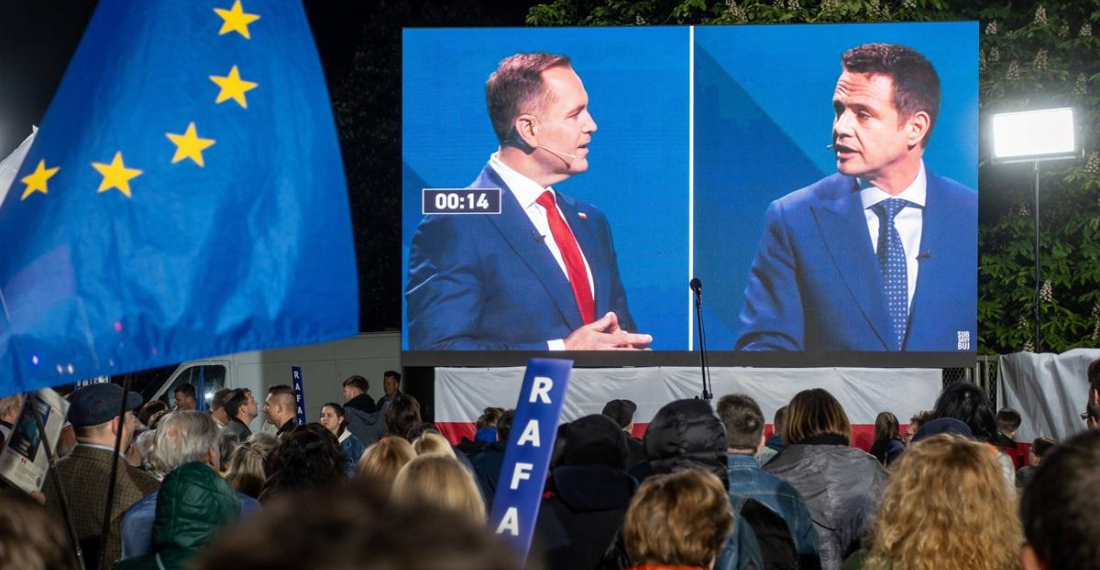Poland’s presidential election has come down to an ideological choice between a liberal pro-European versus a nationalist conservative. They are polling so close that the outcome is impossible to predict in the run-off round on Sunday 1st June. The contest has international implications with US President Donald Trump throwing his weight behind the nationalist candidate, Karol Nawrocki, dangling the prospect of closer military ties if Poles choose him over liberal Warsaw Mayor Rafał Trzaskowski.
Trump met with Nawrocki earlier this month at the White House and sent his Homeland Security Secretary Kristi Noem to a meeting of the conservative pressure group CPAC in Poland, where she offered a strong endorsement. Hungary’s prime minister, Viktor Orbán, also gave his support to Nawrocki at a CPAC meeting in Budapest on Thursday.
According to AFP, latest polls predict a close race, with 50.6 percent of the vote going to Trzaskowski and 49.4 percent to Nawrocki, a tiny difference within the polling margin of error.
At stake is not only Poland’s domestic course but also the international standing of a key European Union and NATO member on the alliance’s eastern flank, in a region overshadowed by Russia’s war in Ukraine.
Sunday’s vote will either empower Prime Minister Donald Tusk, a pro-EU reformer, with a presidential ally who can advance his rule-of-law agenda or saddle him with a rival who could veto legislation and block government initiatives.
Trzaskowski’s supporters argue that a pro-European leader would enhance Poland’s global standing during a time of war in Europe. Nawrocki’s backers believe only conservative rule can safeguard national sovereignty and traditional Christian values, and they say Trump’s support would greatly enhance Poland’s security.
The candidate who may ultimately decide the outcome is one who won’t appear on the runoff ballot. Sławomir Mentzen, a 38-year-old far-right politician and beer producer from the central city of Torun, finished third in the first round of voting on 18th May, with nearly 15% of the vote. Though eliminated, his supporters, often young, anti-establishment, and deeply skeptical of both Brussels and Poland’s political establishment, have become the most sought-after constituency in the country.
Both remaining candidates have gone out of their way to court Mentzen and his base. In recent days, each of them traveled to the north-central Polish town of Torun, famous for being the birthplace of astronomer Nicolaus Copernicus, to appear on Mentzen’s YouTube channel, where he has built a following with a mix of libertarian economics, nationalist rhetoric, and anti-EU invective.
His influence highlights a broader shift in Polish politics, where the far right, once considered a fringe force, is increasingly shaping the national agenda. It’s also part of a larger trend of rightist parties gaining traction across Europe.
After dangling the promises of an endorsement for days, Mentzen on Wednesday afternoon said he wouldn’t offer one to either candidate. “Vote as your conscience tells you,” he told his supporters according to the Associated Press.
Source: commonspace.eu with agencies. Photo: Supporters watch a political debate between Polish presidential candidates Rafal Trzaskowski (R) and Karol Nawrocki (L). AFP
.







